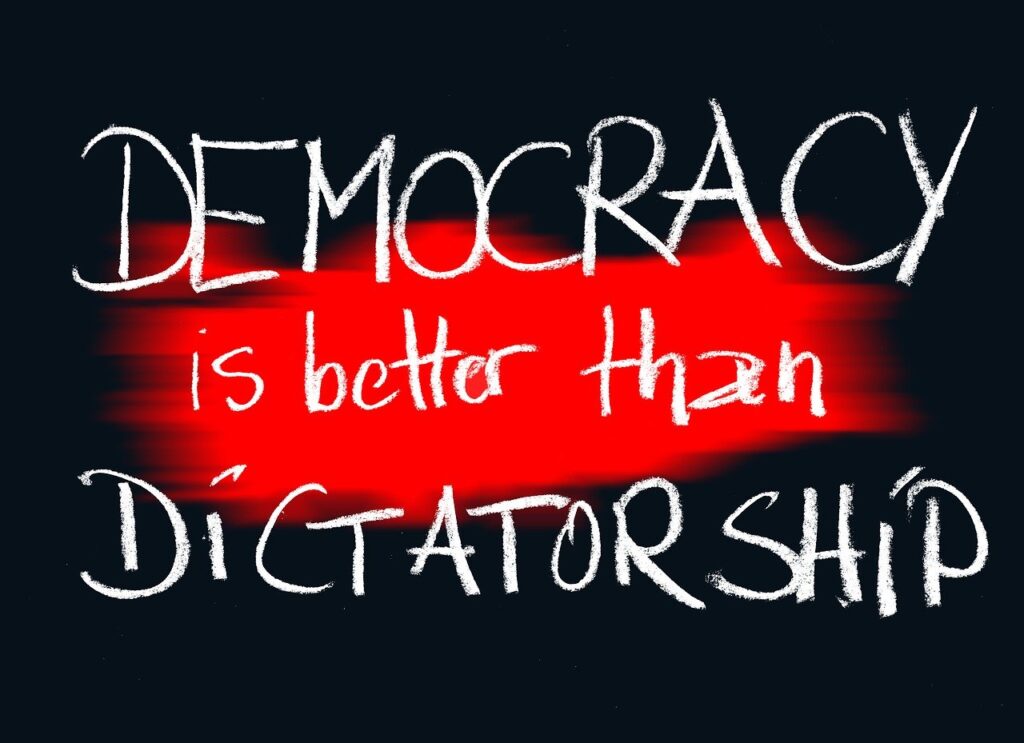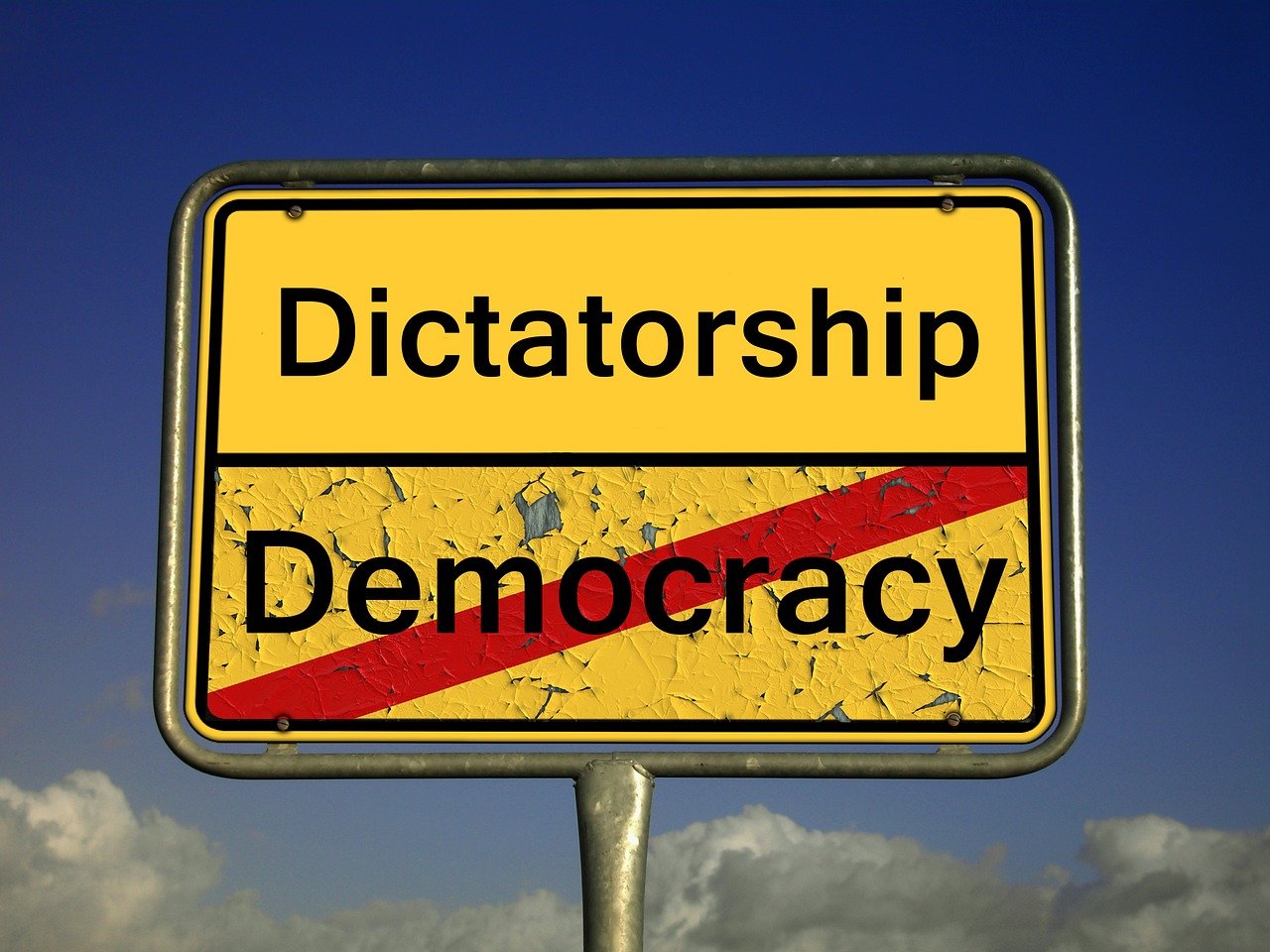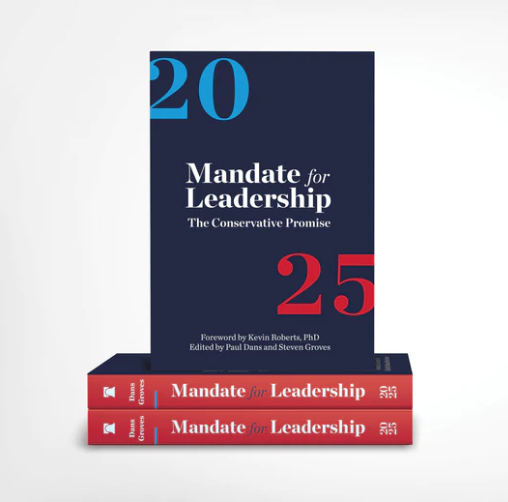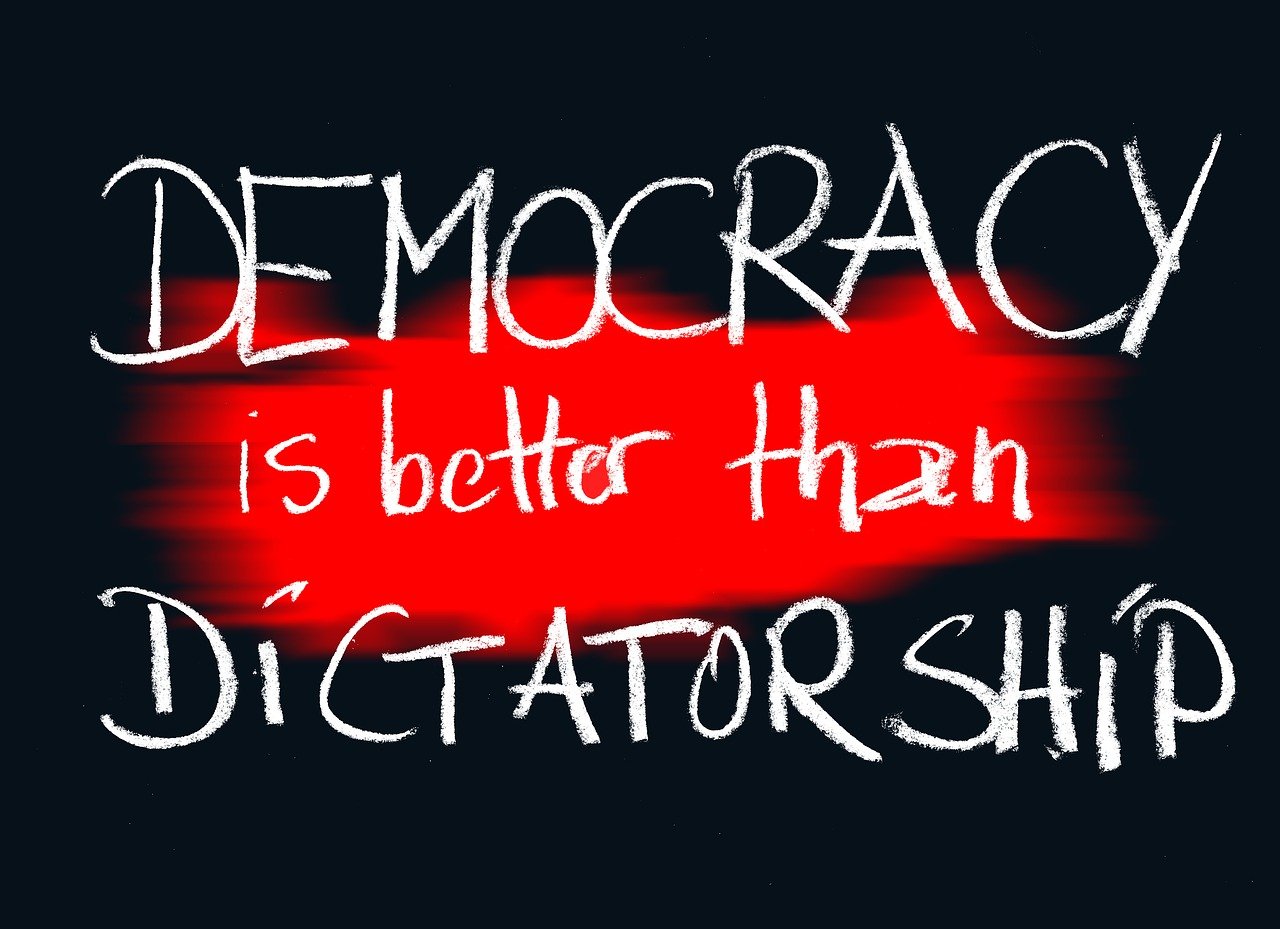(Part 4 of a 4-part series)

In this series we explore recommendations from the Right seeking to expand presidential power in the direction of dictatorial rule. This gambit is the latest in an escalation of tactics designed to win elections and seize control of policymaking. Our country has devolved from one where political parties work together to govern in the peoples’ best interests to one where irreconcilably polarized parties attempt to force their will on each other and the American people.
Our analysis reveals that many of the Right’s recommendations are in conflict with the Constitution. They abridge the separation of powers and the 10th Amendment’s edict for a limited federal government with power reserved to the states and to the people. Some of the proposals are dictatorial in nature and could threaten our democracy. Republicans argue that drastic action is needed to remedy the harms done by the Democrats and an out-of-control federal government. However, they have not made this case. Finally, there is a real possibility that the recommendations could backfire on Republicans.
Where do the American people stand on increasing presidential powers, democracy, and dictatorship?
It’s fair to conclude that many or most Republicans believe the charges and complaints brought against Biden and the Democrats have merit. They also believe that Democrats are responsible for harm, and that the federal government does too much. Accordingly, more and more Republicans are open to increasing the president’s power. They buy into the narratives and will support a compromise-hating candidate who will crush the opposition, restore Republican values, and impose their will. They don’t see this as embracing dictatorship. Instead, they believe Democrats and their media allies use the “dictatorship” ploy to fearmonger.
While Republicans appear to be open to increasing the president’s power, most Americans support democracy and oppose dictatorship. An Economist/YouGov poll conducted December 16-18, 2023, asked: “Do you think it would be a good thing or a bad thing to have a dictator in charge? 80% responded that it would be a bad thing, with almost no difference between Democrat and Republican responses. Also, 67% agreed with the statement, “Democracy is the greatest form of government.”
A Pew Research poll in June 2023 asked Americans to identify the biggest problems facing the country. After inflation and health care, the third biggest problem was “the ability of Dems and Reps to work together” with 62% of Dems and 63% of Reps agreeing.
So where does this leave us? It’s clear that the vast majority of Americans oppose dictatorship and want Democrats and Republicans to work together to solve problems. Both political parties strongly share these common interests. In addition, many Republicans like the idea of increasing presidential powers and view the talk about dictatorship to be partisan scare tactics.
All Americans need to become informed about the recommendations and decide for themselves. Do the proposals threaten democracy, and will they help or hinder our strong common interest in Democrats and Republicans working together to solve problems?
Democrats, Republicans, and Independents—all Americans—should decide for themselves on this matter that involves the fate of our nation. Our respective political parties, favorite leaders, and preferred media outlets repeatedly tell us what to think. But now it’s time for us to set those narratives aside and do our own thinking. Specifically, each of us needs to ponder a series of critical questions to determine where we stand regarding the future of our country.
When it comes to that future, it makes sense to start with two values that the vast majority of us share. First, democracy is the greatest form of government (i.e., we don’t want a dictatorship). And second, we want Republicans and Democrats to work together to solve problems. Thus, the lens we should use when we consider the recommendations is simple: Do the proposals threaten democracy, and will they help or hinder our strong common interest in Democrats and Republicans working together to solve problems?
Here, then, is what every American should do:
1. Go back and read what Trump and the Republicans are actually recommending in Project 2025 and Agenda 47. You should go online and look at the actual content; or you could read Part 2 of this series that treats the recommendations by extracting from the actual source materials. In looking at the actual recommendations, pay attention to the rhetoric used to frame the recommendations.
2. Ask yourself whether the rhetoric and content of these recommendations will promote or hinder Democrats and Republicans working together. Does the material attribute blame for problems to the Democrats, saying how the Republicans must respond; or does the material engage Democrats to become involved and help solve the problems? Are the problems and solutions addressed ones that Trump and the Republicans have been talking about as part of their agenda; or are the problems and solutions ones that the other half or two-thirds of Americans might likely embrace?
3. As to the allegations and complaints made against Biden and the Democrats, ask yourself which have been proven with direct evidence, and which are repeated talking points that could be fabricated or aren’t supported by direct evidence. If we are going to expand presidential powers, shouldn’t there be actual harm? And, what about the damage to democracy and trust in government that results from false allegations?
4. Ask yourself whether the recommendations are consistent with the democracy our Founding Fathers created. This includes the separation of powers; the 10th Amendment; and a government of the people, by the people, and for the people based on majority rule. Think about your answer from both sides of the equation. Are you comfortable with Democrats having the same powers? Are you comfortable with trusting the president with these expanded powers? Or do you prefer staying much closer to the separation of powers and 10th Amendment as provided in our Constitution? Are you comfortable with the president and the federal government exercising increased power to set policy on matters traditionally reserved to the states? Finally, given that a key aspect of our democracy is majority rule, are you comfortable with the president using enhanced powers to adopt policy that only a minority of Americans support, while ignoring policies supported by large majorities of Americans?
5. Ask yourself about the future of policymaking in America. Currently, Democrats and Republicans blame one another for failures and attempt to impose their agendas on one another and the American people. Each time a different party captures the White House or Congress, it attempts to undo the policymaking of the prior administration. Will the recommendations exacerbate or reduce this problem? What is the logical outcome if each president has expanded power to act unilaterally and to hire and fire tens of thousands of federal employees who are hired and fired on the basis of carrying out the president’s will? And, with all these partisan back-and-forth actions, what prospect is there that we will meaningfully tackle such difficult issues as federal spending, deficits, abortion, illegal immigration, and gun control?
Rather than continuing the escalation in tactics to win and seize control of policymaking to pursue one party’s agenda, a far better path is to concentrate on bipartisan policymaking that serves all or most Americans.
Conflict is inevitable in government. Differences of opinion and philosophy regarding the role of government are entirely appropriate. Our Founding Fathers created a democracy—a government of the people, by the people, and for the people. They adopted a Constitution that created the framework for the people’s representatives to resolve conflict via deliberation and compromise as necessary to serve the needs of the people and the country (see especially Federalist paper # 10). They were concerned that factions could gain control and that this would be a danger to the country.
All of us—whether Democrat, Republican, Independent or otherwise—should reject the ongoing escalation of tactics designed to enable a political party to win elections and seize control of policymaking to advance the interests of the party and its members. Enhancing presidential powers is just another big step in the wrong direction.
Instead, we need to return to “governing” as contemplated and enabled by the Constitution and our Founding Fathers. We need to tell our political parties and elected representatives that we want them to work in a bipartisan manner to develop policies that serve the interests of most Americans. We are done with the politics of division that has alienated us from one another, ruined trust in government, and impeded real progress on problems that face the country.
Here’s what you can do to help America return to “governing”
- Talk with your friends about the escalating trend in tactics that use the politics of division to win office and impose one party’s political agenda. Refer them to this series, if you’d like. Urge them to become knowledgeable about the actual recommendations. Also urge them to answer for themselves the five questions raised above. Inform them about your decision and your desire to return to “governing.”
- Stay vigilant regarding misinformation, falsehoods, and unfounded allegations. Whether it comes from a source you prefer and trust, or from a source you oppose and distrust, it’s important to validate what you’re seeing and reading. Deep fakes, AI-generated responses and the like are only going to compound the need to stay vigilant. Finally, evaluate your “echo chamber” and change it to be more balanced and less biased. In order to communicate with and find middle ground with those who hold different views, we need to understand where they are coming from. In separating fact from fiction, we need to acknowledge that both sides have bent the truth.
- Tell your elected representatives that you reject the ongoing escalation in tactics that has divided Americans and led to each side attempting to impose its will on the other. Tell them that you have carefully considered the recommendations from the Right and believe they will only make matters worse. Tell them you will not be contributing to or voting for a candidate who endorses these recommendations. Tell them you want them to work in a bipartisan manner to solve problems, and that you understand compromise will be involved.
- Stop donating money to your political party as long as it practices the politics of division and blame via lies, false charges, and unproven allegations. They have no reason to change these divisive practices unless we take away their life blood.
- Vote, in November, as if the fate of the country is at stake. It is!
EXPLORE THE WHOLE SERIES
American Democracy: Is Dictatorship on the Horizon?

American Democracy: Is Dictatorship on the Horizon? (Part 1 of 4)

Expanding Presidential Power: A Close Look at Proposals from the Right (Part 2 of 4)

Expanding Presidential Power: Has the Right Made its Case? (Part 3 of 4)

Leave a Reply